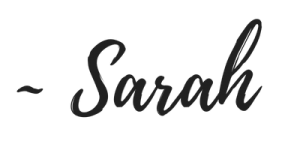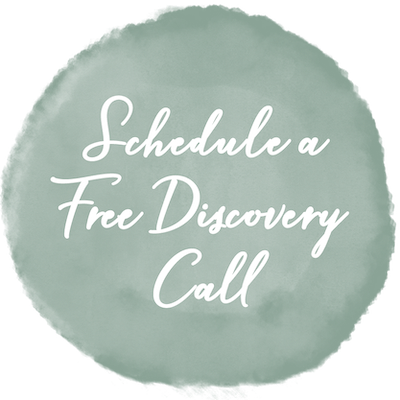When I think about the moments that quietly transform recovery, exposure and response prevention work always jumps to my mind. It's not flashy, or quick, or easy. But it can be steady and powerful.
In essence, ERP means gently approaching what you fear or avoid, and then practicing not doing the behaviours that temporarily relieve anxiety but keep the eating disorder in control. Over time, your brain learns a new story about safety, food, body sensations, movement, and worth.
I know how much resistance this can stir up. Every cell can shout not yet. This is why caring structure, co-regulation, and tiny steps matter. It is also why a recovery coach can be a very supportive guide for this phase of healing.
Why exposure and response prevention is so important
Eating disorders can be extremely effective short-term anxiety managers. If we avoid certain foods and portions, ritualize, over-exercise, body-check, and bargain with ourselves, our anxiety drops for a moment. And our nervous system says noted, that worked, do it again. However, the price is that fear grows larger and life shrinks smaller and smaller.
ERP flips this loop. You:
- Approach a feared cue or situation in a planned, supported way
- Stay long enough to let the rise and fall of discomfort do what it naturally does
- Prevent the usual responses that keep the cycle in repetition
Over repetitions, your brain encodes new learning. I can feel full and be safe. I can keep binge foods in my home and they can become just foods. I can rest after lunch and my world does not collapse. I can see my reflection and soften around the urge to judge. The goal is not to eliminate anxiety but to grow your capacity to hold it, so freedom becomes bigger than fear.
How a recovery coach can help you do ERP safely and effectively
In my coaching work, this is where collaboration, empathy and attunement to what you are going through are so key. A coach can:
- Build a values-led exposure plan: We map a hierarchy together, anchored to what matters to you: having pizza with your partner, resting on weekends, traveling with friends, cooking family recipes again. Values create energy to help match that of the fear.
- Correct dosage: Challenging but not overwhelming is the ideal spot. We start where success is possible and iterate. ERP works through repetition, variation, and safety in the relationship.
- Practice in-session and in real life: We can eat the food together on video, sit through the after-meal window in real time, walk the grocery aisles, try on clothes, or do guided mirror work. The nervous system learns faster with a steady, co-regulating presence.
- Support response prevention in the hard moments: We plan for urges ahead of time and rehearse scripts and skills. Urge-surfing, Dropping Anchor, long exhales, and self-compassionate touch are all tools we can use as the wave rises and falls. I've written about many of these in my blog post here.
- Debrief and encode the learning: After each exposure we capture what you noticed, what surprised you, and what you want to remember next time. The goal is new learning, not perfection or instant calm.
- Collaborate with your therapist and dietitian: ERP sits best inside a team. I coordinate with your clinician and dietitian so our work aligns with medical needs, nutritional rehabilitation, and deeper therapy goals.
- Health At Every Size-aligned and trauma-informed: We never use weight as a barometer of success. We honour consent, pacing, identities, and lived experience. We build the capacity to be with discomfort without shaming your nervous system for being protective.
- Expect ebb and flow: Setbacks and surges in anxiety are not failures. They are information. We adjust the ladder, celebrate small wins, and continue.
What if the discomfort and trigger feels constant, if I just feel miserable in my body almost all of the time. Can ERP still help?
When feeling distressingly huge or wrong in your body is constant, ERP can still help, no matter your weight or where you are in restoration or recovery. For some, distress is amplified by living in a culture steeped in weight stigma; for others, it is magnified by malnutrition, hormonal shifts, and a sensitized nervous system during weight restoration. Your pain makes sense. ERP here is not about learning to tolerate injustice or forcing yourself through misery. Rather, it’s about updating what is truly dangerous, softening reflexive self-protection that backfires, and building the capacity to stay with yourself as your body changes. Whenever we can, we also reduce unnecessary suffering with weight-inclusive care, supportive community, medical oversight, and clothing that fits the body you have right now.
Think of daily life as a stream of living exposures: the feel of a waistband after lunch, fullness and bloat, seeing your reflection, sitting still when every impulse says move, being photographed, walking into a room where you feel seen…. The lever you can pull over and over is response prevention. This might look like choosing rest instead of compensatory exercise, limiting mirror drive-bys to one brief intentional practice a day, sitting for ten to fifteen minutes after meals to feel fullness without bargaining, and pausing for two to five minutes to ride urges with long exhales or Dropping Anchor before taking any action. Vary contexts and pair each step with a value that matters to you so the learning sticks and has meaning beyond getting through the moment.
A recovery coach can steady you inside this ongoing work. Together you can set a small set of prevention anchors that fit your body and phase of recovery, practice brief live exposures with co-regulation, weave in interoceptive work safely, and debrief so new learning gets encoded. Your coach can also coordinate with your therapist and dietitian, honor the realities of stigma and the physiology of restoration, and hold space for grief while protecting your recovery from compulsions that keep the eating disorder and fear in control.
If you are living with constant discomfort, you are already doing exposures all day long. ERP here is about changing the dance. You are teaching your body that you can feel the feeling, acknowledge the context, and still choose care, nourishment, and connection. This is how safety grows inside a body you are learning to call home.
If ERP sounds scary
I completely understand. And it truly is. If it wasn’t, you would be doing it on your own, already, and the eating disorder wouldn’t have the hold that it does. However, when done slowly, safely, and with a team that you trust, it can be scary but doable, and extremely transformational over time. It can help to remember that:
- Discomfort is a teacher, not a verdict
- You do not have to like an exposure for it to help you
- You can be afraid and brave at the same time
- New learning often feels awkward before it feels free
Just like that first wobbly moment you allow the waves to lap over your ankles again, your nervous system slowly learns that you can be held by the water, not swallowed by it.
With care, patience, and the right support, ERP becomes less about forcing and more about befriending. It is the practice of staying with yourself in the very moments the eating disorder insists you cannot. That is how freedom grows.
With so much love and belief in your journey,

Journaling Prompts:
- If fear were quieter, what would you most want to be able to do with food, movement, or your body in the next three months?
- List five small exposures that feel scary but a little exciting. Circle one you think you might be able to try with support this week.
- After an exposure, complete this sentence: I learned that even when I felt… I could still….
- What responses do you normally use to lower anxiety after eating or body distress? The more you can name, the more targeted your response prevention plan can be.
- Try writing a compassionate note from your future self to your present self about why this work feels important for you.
Support For Your Journey
If you feel you could use more support on your eating disorder recovery journey I would love to connect with you. Contact me to book a free video discovery call so that we can explore if working together would be a good fit. I would love to hear from you.











